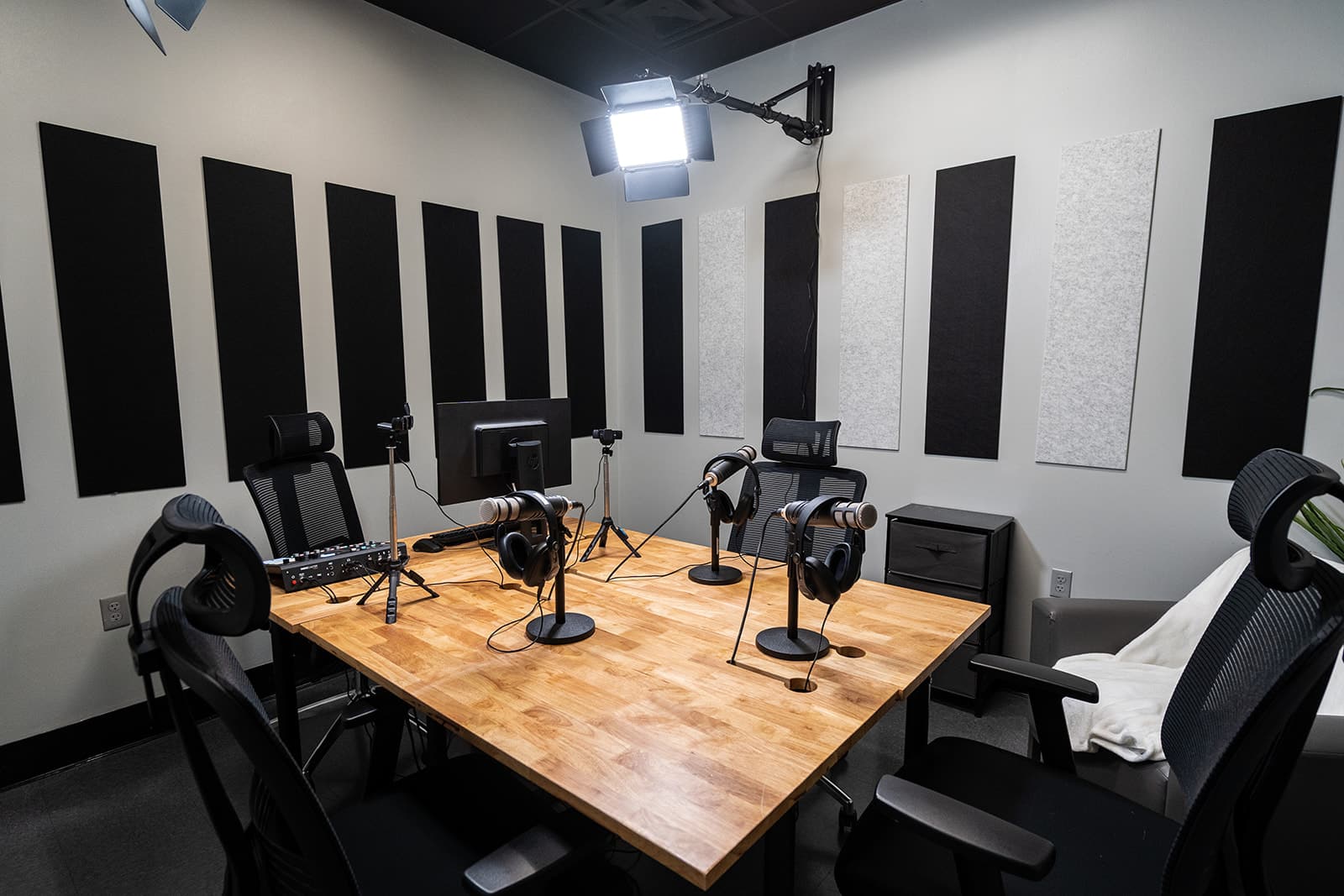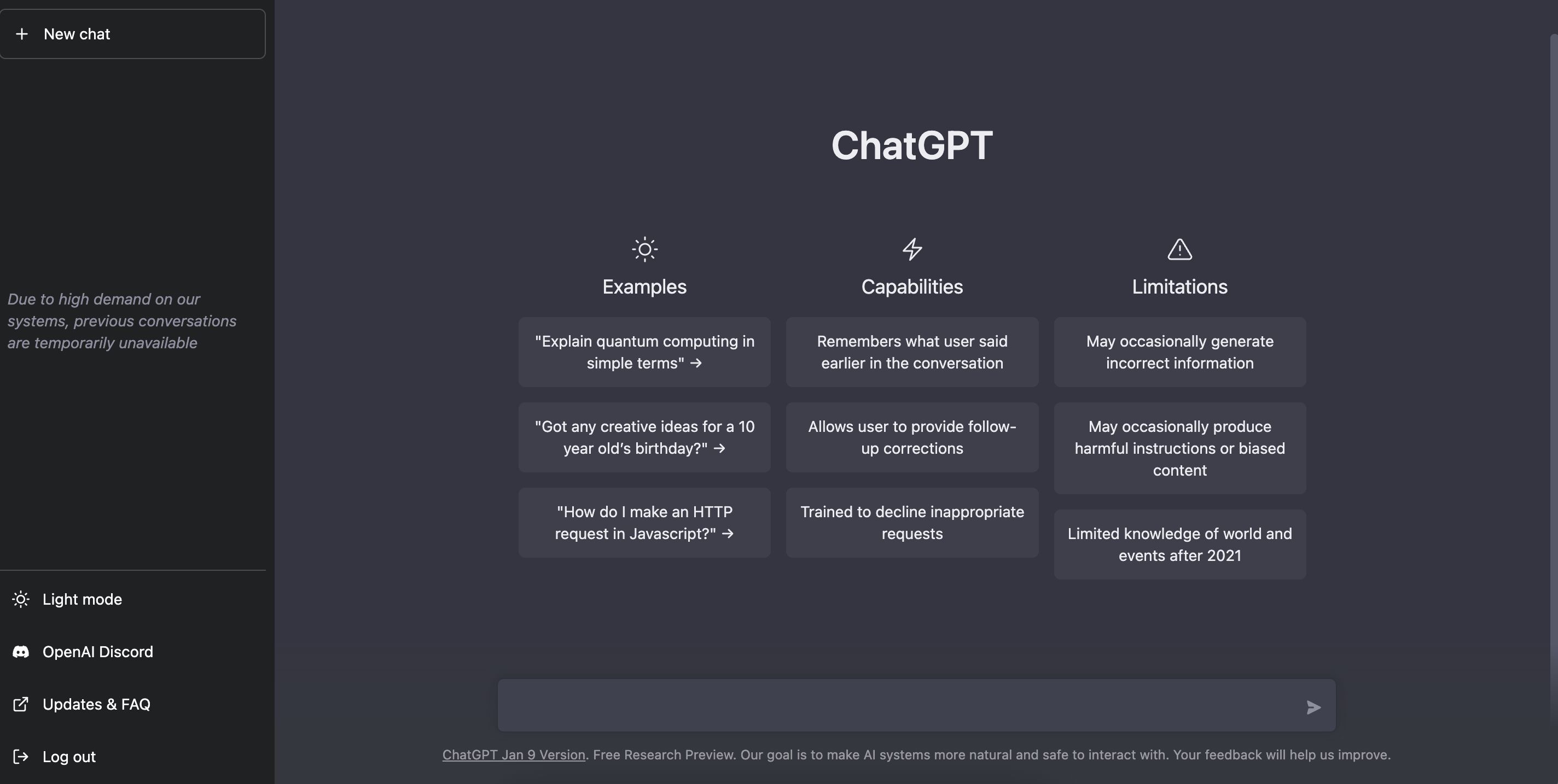“Unleash Your Podcast Potential: How to Use ChatGPT for Killer Podcast Ideas
Artikel Terkait Unleash Your Podcast Potential: How to Use ChatGPT for Killer Podcast Ideas
- Unleash Your Personal Brand: How ChatGPT Can Be Your Secret Weapon
- Unleash The Power Of ChatGPT: A Comprehensive Guide To Boosting Sales
- Unleash Your Inner Wordsmith: ChatGPT Writing Hacks For Bloggers
- Unleash Your Content Powerhouse: Mastering Your Content Calendar With ChatGPT
- Unleash The Power Of ChatGPT: Crafting Compelling Ad Copy That Converts
Table of Content
Video tentang Unleash Your Podcast Potential: How to Use ChatGPT for Killer Podcast Ideas
Unleash Your Podcast Potential: How to Use ChatGPT for Killer Podcast Ideas

Stuck in a podcast idea rut? Feeling like you’ve exhausted all the interesting topics in your niche? Fear not, aspiring podcaster! In the ever-evolving world of content creation, ChatGPT is emerging as a powerful brainstorming partner, capable of sparking innovative ideas and helping you craft a podcast that captivates your audience. This article will delve into the practical ways you can leverage ChatGPT to generate compelling podcast concepts, from identifying niche opportunities to refining your overall theme.
Understanding ChatGPT: Your AI Brainstorming Buddy
ChatGPT, developed by OpenAI, is a large language model that excels at generating human-like text based on prompts you provide. Think of it as a highly intelligent and creative assistant that can understand your requests and offer a diverse range of ideas and suggestions. It’s not a replacement for your own creativity, but rather a tool to amplify it, helping you break through creative blocks and explore uncharted territory.
Phase 1: Identifying Your Podcast Niche and Target Audience
Before diving into idea generation, it’s crucial to define your podcast’s niche and target audience. This groundwork will ensure that the ideas you generate are relevant and likely to resonate with potential listeners.
1. Define Your Passion and Expertise: What topics genuinely excite you? What subjects are you knowledgeable and passionate about? A successful podcast thrives on authenticity, so choose a niche that aligns with your interests.
2. Identify Your Target Audience: Who are you trying to reach? What are their interests, pain points, and aspirations? Understanding your audience will help you tailor your content and attract loyal listeners.
3. Use ChatGPT to Explore Niche Opportunities: Even if you have a general idea, ChatGPT can help you refine it and identify potential sub-niches. Try prompts like:
- "What are some emerging trends in [your general area of interest]?"
- "What are some underserved niches within [your general area of interest]?"
- "What are some popular topics related to [your general area of interest] on social media?"
- "What are the common pain points of [your target audience]?"

Example:

Let’s say you’re interested in personal finance. You could ask ChatGPT: "What are some underserved niches within personal finance?"
ChatGPT might suggest:
- Personal finance for freelancers and gig workers
- Ethical and sustainable investing for millennials
- Financial literacy for artists and creatives
- Navigating student loan debt forgiveness programs

These suggestions can spark further exploration and help you pinpoint a niche that’s both interesting to you and valuable to a specific audience.
Phase 2: Generating Podcast Ideas with ChatGPT
Now that you have a clear understanding of your niche and target audience, it’s time to unleash ChatGPT’s creative power. Here are several strategies you can employ:
1. Brainstorming Specific Episode Topics:
This is the most direct way to use ChatGPT. Provide a specific theme or concept and ask for episode ideas.
- Prompt: "I’m creating a podcast about [niche]. Give me 10 episode ideas."
- Example: "I’m creating a podcast about sustainable living for busy professionals. Give me 10 episode ideas."
ChatGPT might suggest:
- Sustainable Commuting: Eco-Friendly Options for the Modern Professional
- Reducing Food Waste: Practical Tips for Busy Professionals
- Building a Sustainable Wardrobe: Quality Over Quantity
- Energy Efficiency at Home: Saving Money and the Planet
- Mindful Consumption: Breaking Free from Consumerism
- Sustainable Travel: Eco-Friendly Vacation Ideas
- Green Cleaning: Natural Alternatives for a Healthy Home
- Supporting Sustainable Businesses: Voting with Your Wallet
- The Psychology of Sustainability: Overcoming Barriers to Change
- Sustainable Finance: Investing in a Greener Future
2. Exploring Different Podcast Formats:
ChatGPT can help you explore different podcast formats to keep your content fresh and engaging.
- Prompt: "What are some different podcast formats I could use for a podcast about [niche]?"
- Example: "What are some different podcast formats I could use for a podcast about true crime?"
ChatGPT might suggest:
- Interview-based: Featuring interviews with experts, victims, or investigators.
- Narrative storytelling: Presenting a single case over multiple episodes.
- Case-of-the-week: Covering a different case in each episode.
- Debate format: Exploring different perspectives on controversial cases.
- True crime comedy: Combining humor with true crime stories (use with caution and sensitivity).
3. Analyzing Existing Content:
ChatGPT can analyze existing articles, blog posts, or news stories to identify potential podcast topics.
- Prompt: "I found this article about [topic]. What podcast episode ideas can I generate from it?"
- Example: "I found this article about the rise of remote work. What podcast episode ideas can I generate from it?"
ChatGPT might suggest:
- The Future of Remote Work: Trends and Predictions
- Building a Thriving Remote Team: Best Practices for Managers
- Remote Work and Mental Health: Maintaining Well-being
- The Legal and Financial Implications of Remote Work
- The Impact of Remote Work on Urban Development
4. Generating Questions for Interviews:
If you plan to conduct interviews, ChatGPT can help you formulate insightful questions.
- Prompt: "I’m interviewing [expert] about [topic]. What are some good questions to ask?"
- Example: "I’m interviewing a cybersecurity expert about data privacy. What are some good questions to ask?"
ChatGPT might suggest:
- What are the biggest data privacy threats facing individuals and businesses today?
- What steps can individuals take to protect their personal data online?
- How are data privacy laws evolving, and what impact will they have?
- What are the ethical considerations surrounding data collection and usage?
- What advice would you give to businesses looking to improve their data privacy practices?
5. Identifying Keywords and SEO Opportunities:
ChatGPT can help you identify relevant keywords to optimize your podcast for search engines.
- Prompt: "What are some relevant keywords for a podcast about [niche]?"
- Example: "What are some relevant keywords for a podcast about vegan cooking?"
ChatGPT might suggest:
- Vegan recipes
- Plant-based diet
- Vegan cooking tips
- Vegan meal prep
- Vegan nutrition
- Vegan ingredients
- Vegan lifestyle
- Veganism for beginners
Phase 3: Refining and Validating Your Ideas
Once you’ve generated a list of potential podcast ideas, it’s crucial to refine and validate them.
1. Evaluate the Feasibility: Can you realistically create content on this topic? Do you have the necessary resources, expertise, or access to guests?
2. Assess the Market Demand: Is there an audience for this podcast? Are there similar podcasts already? If so, how can you differentiate yourself?
3. Get Feedback: Share your ideas with friends, family, or potential listeners and gather their feedback.
4. Keyword Research: Use keyword research tools like Google Keyword Planner or Ahrefs to assess the search volume for your chosen keywords.
5. Test the Waters: Consider creating a pilot episode or a short series to gauge audience interest.
Tips for Effective ChatGPT Prompts:
- Be specific: The more specific your prompt, the better the results.
- Use keywords: Incorporate relevant keywords into your prompts.
- Experiment: Try different prompts and variations to see what works best.
- Iterate: Refine your prompts based on the results you get.
- Provide context: Give ChatGPT background information about your podcast and target audience.
- Ask for examples: Request examples to get a better understanding of what ChatGPT can do.
FAQ: Common Questions About Using ChatGPT for Podcast Ideas
Q: Is ChatGPT going to replace human creativity?
- A: No. ChatGPT is a tool to enhance creativity, not replace it. It can generate ideas and suggestions, but ultimately, it’s up to you to refine and execute them.
Q: How accurate is ChatGPT?
- A: ChatGPT can sometimes provide inaccurate or misleading information. Always double-check the information it provides and rely on credible sources.
Q: Is ChatGPT free to use?
- A: OpenAI offers both free and paid versions of ChatGPT. The free version has limitations in terms of usage and access to advanced features.
Q: Can ChatGPT help me write my podcast scripts?
- A: Yes, ChatGPT can assist with scriptwriting, but it’s essential to review and edit the content to ensure it aligns with your voice and style.
Q: How can I avoid plagiarism when using ChatGPT?
- A: Always cite your sources and avoid copying and pasting content directly from ChatGPT. Use the generated content as inspiration and rewrite it in your own words.
Q: What if ChatGPT gives me generic or unoriginal ideas?
- A: Refine your prompts, provide more context, and experiment with different variations. You can also ask ChatGPT to be more creative or specific in its suggestions.
Conclusion: Embrace the Power of AI for Podcast Innovation
ChatGPT is a game-changer for podcast creators, offering a powerful tool to overcome creative blocks, explore new niches, and generate compelling episode ideas. By understanding its capabilities and using it strategically, you can unlock a wealth of inspiration and create a podcast that resonates with your target audience. Remember to combine ChatGPT’s suggestions with your own creativity, expertise, and passion to craft a truly unique and engaging podcast experience. So, embrace the power of AI, experiment with different prompts, and unleash your podcast potential! The world is waiting to hear what you have to say.
